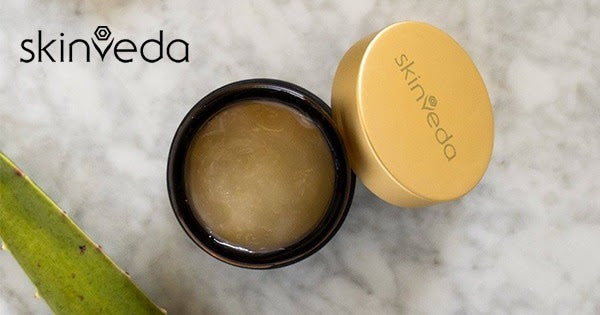News

Dirty Secrets of the Beauty Industry, Part 1: Skinveda's Founder Tells Her Story
We asked some of the founders of our Indie brands to reveal a “Dirty Secret” of the conventional beauty industry – and tell us how it motivated them to make a difference.
Dirty Secrets of the Beauty Industry – Part 1: Shilpi of Skinveda
When you’re Principal Scientist at some of the largest commercial beauty brands as Shilpi was for over 18 years, you don’t miss much about how items are produced and brought to market:
"Most decisions [by large commercial beauty firms] are made based on commerce – it's all about adding a drop of that and a drop of this to bulk up the ingredient deck. When we talk about 'mass beauty', the word 'mass' is indicative of the fact that you are non-selective ...."
"I chose to start my own practice as an ethical cosmetic formulator and a brand that was solely performance-based using the highest quality plant-based ingredients that mimicked the chemistry of their synthetic lab-produced counterparts."
"As a scientist and an entrepreneur with experience in cosmetics formulation, pharmaceutical drug development and plant-based science, I have the advantage of lookimg at all sides of a formulation."
"I believe in 'Less is More' ... add a few high quality ingredients in the right amounts in synergy and customized to each individual’s skin as well as mind-body constitution."
Find your balance!
It is this time of the year when we are entering winter and cool weather is upon us. In Ayurveda, this is the Vata season entering Kapha. With Vata season is associated dryness, poor circulation and especially for people with Vata constitution, the symptoms are aggravated. Kapha, on the other hand, brings wetness with cold harsh climates. For Vata dosha, the latter part of Kapha might be beneficial as we transition from late spring to early summer. Right now, Vatas need to stay balanced and one with the transiton by keeping your bodies warm, eat warmer foods (the best approach to diet during this time of year is to concentrate on herbs and foods that carry dual tastes to avoid aggravating your Vata nature while balancing the effects of your Kapha environment). Pittas, Kapha season can be a mixed blessing,While its cooling temperatures may be balancing to your fiery nature, the practices that best help balance this season invariably involve warming. Licorice in particular is good for you at this time of year as it is Pitta-pacifying and phlegm-loosening.
It’s tempting to think that it would be easy for Kaphas to stay in balance during Kapha season, but unfortunately that’s not true.Remember that Kapha tends towards stagnation and heaviness if it is not properly invigorated.As in most things, nature is the best teacher. While the weather and temperature may be Kapha-like, plants and animals come to life as winter becomes spring. This is no accident and something that should be mimicked. If you’re not already involved in an active lifestyle, this is a great time for you to start one. Otherwise, the increased cold and wetness in your environment may lead you towards increased sedentary ways.
Artichoke - Our Spring friend

There is no vegetable I find as useful as the artichoke for internal cleansing purposes. The artichoke is a mighty antioxidant, as well as a powerful digestive, hepatic and gall bladder aid. It naturally reduces cholesterol, and thereby decreases the risk for arteriosclerosis and coronary heart disease. From an Ayurvedic point of view, artichokes exert a cooling and drying effect on the organism. They are effective for disorders of Pitta and Kapha, where their juicy flesh eliminates excess heat and accumulated toxins. Artichokes are therefore great for this time of year, I can’t wait to start making them!
This diuretic vegetable is low in calories,with only 60 calories for one medium cooked globe and fat-free. Decoctions of artichoke leaves have been used as blood cleansers, cholertics, to improve bile production and secretion and to detoxify the liver and the skin.
In Skinveda's Ayurvedic Body Sculpting Cream, Artichoke helps flush out toxins and has a chloretic effect.
Current research is showing benefits to the liver from cynarin, a compound found in the artichoke's leaves. Silymarin is another compound found in artichokes that has powerful antioxidant properties and may help the liver regenerate and heal the tissues.
